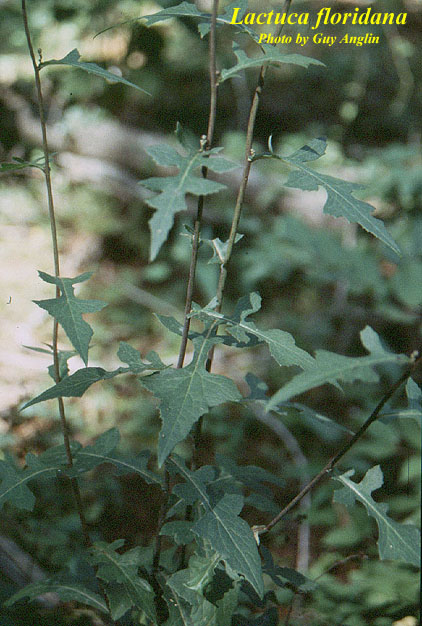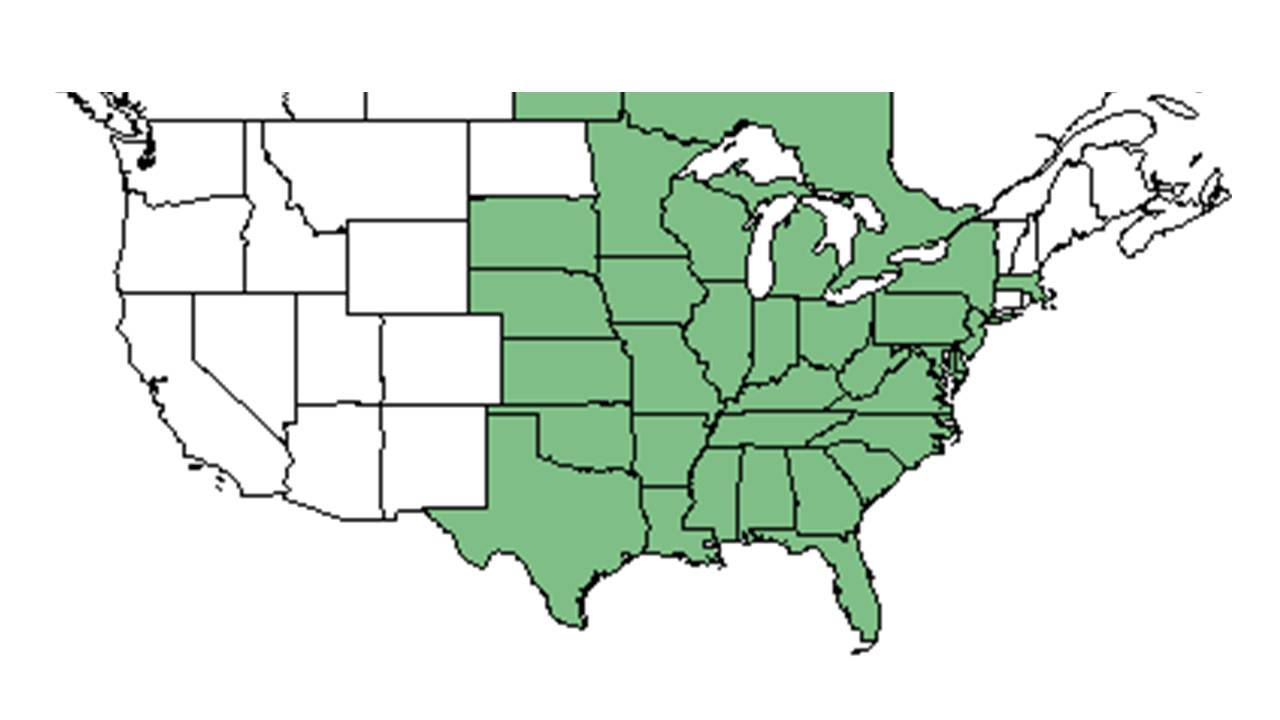Difference between revisions of "Lactuca floridana"
(→Taxonomic notes) |
|||
| Line 35: | Line 35: | ||
This species was observed flowering in June and August through October and fruiting in October and December (FSU Herbarium). | This species was observed flowering in June and August through October and fruiting in October and December (FSU Herbarium). | ||
| − | + | <!--===Seed dispersal===--> | |
| − | ===Seed dispersal=== | + | <!--===Seed bank and germination===--> |
| − | ===Seed bank and germination=== | + | <!--===Fire ecology===--> <!--Fire tolerance, fire dependence, adaptive fire responses--> |
| − | ===Fire ecology=== <!--Fire tolerance, fire dependence, adaptive fire responses--> | + | <!--===Pollination===--> |
| − | ===Pollination=== | + | <!--===Use by animals===--> <!--Herbivory, granivory, insect hosting, etc.--> |
| − | ===Use by animals=== <!--Herbivory, granivory, insect hosting, etc.--> | + | <!--===Diseases and parasites===--> |
| − | ===Diseases and parasites=== | ||
==Conservation and Management== | ==Conservation and Management== | ||
==Cultivation and restoration== | ==Cultivation and restoration== | ||
Revision as of 20:19, 16 March 2016
| Lactuca floridana | |
|---|---|

| |
| Photo by Guy Anglin, Atlas of Florida Vascular Plants | |
| Scientific classification | |
| Kingdom: | Plantae |
| Division: | Magnoliophyta - Flowering plants |
| Class: | Magnoliopsida – Dicotyledons |
| Order: | Asterales |
| Family: | Asteraceae ⁄ Compositae |
| Genus: | Lactuca |
| Species: | L. floridana |
| Binomial name | |
| Lactuca floridana (L.) Gaertn. | |

| |
| Natural range of Lactuca floridana from USDA NRCS Plants Database. | |
Common name: woodland lettuce
Contents
Taxonomic notes
Synonyms: Lactuca floridana var. floridana; L. floridana var. villosa (Jacquin) Cronquist; Mulgedium floridanum (Linnaeus) A.P. de Candolle; Mulgedium villosum (Jacquin) Small
Description
A description of Lactuca floridana is provided in The Flora of North America.
Distribution
Ecology
Habitat
This species can be found in mesic coastal calcareous hammocks, mesic woodlands, moist edges of ponds, upland hardwood forest remnants, and bordering small streams (FSU Herbarium). It also does well in disturbed areas near boat landings, on camping areas, along railroad banks, weedy areas, pastured fields, and clearings of swamps and woodlands (FSU Herbarium). It grows can grow in fully shaded to partial shade environments in loamy and oyster shell soils (FSU Herbarium). Associated species include longleaf pine, oak, hickory, beech, magnolia, and sweetgum (FSU Herbarium).
Phenology
This species was observed flowering in June and August through October and fruiting in October and December (FSU Herbarium).
Conservation and Management
Cultivation and restoration
Photo Gallery
References and notes
Florida State University Robert K. Godfrey Herbarium database. URL: http://herbarium.bio.fsu.edu. Last accessed: June 2014. Collectors: Loran C. Anderson, A. H. Curtiss, A. Gholson Jr., Robert K. Godfrey, C. Jackson, R. Kral, T. MacClendon, K. MacClendon, Richard S. Mitchell, Harry Neel, Gil Nelson, J. B. Nelson, George R. Cooley, Carroll E. Wood, Jr., and Kenneth A. Wilson. States and Counties: Florida: Calhoun, Dixie, Duval, Escambia, Franklin, Gadsden, Hernando, Jackson, Jefferson, Leon, Liberty, Masidon, Taylor, and Wakulla.